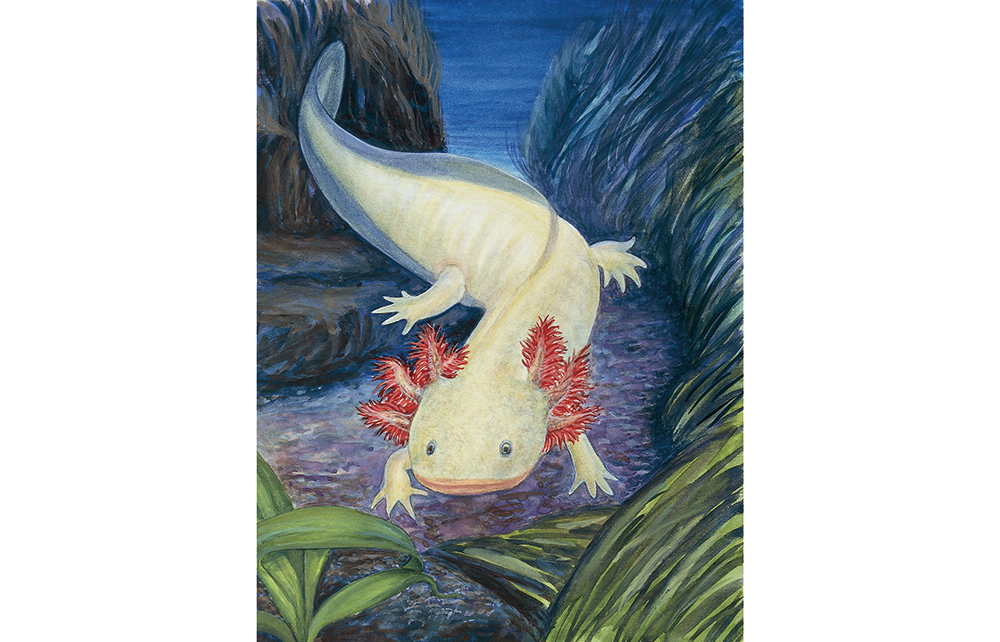In 1982, the philosopher Karl Popper suggested that ‘science may be described as the art of systematic simplification’. In this mind-stretching book, Philip Ball seems to wish to prove Popper’s statement both wrong and correct.
On the one hand, Ball is a clarifier supreme. It is hard to imagine a more concise, coherent, if also challenging, single volume written on the discoveries made in the life sciences over the past 70 years. The author is a former editor of Nature and has been privy to the flow of cutting-edge results coming from the world’s leading research programmes over the past decades. How Life Works has a sense of up-to-the-minute authority.
Yet Ball is also deeply alive to the human story within his project, leavening technical matters with wit and humour. He opens with a synoptic history of the way thinkers from Aristotle onwards have characterised life’s operation. He digresses to incorporate many knotted cultural subplots which are embedded in the seemingly sterilised surfaces of the laboratory.
Erwin Schrödinger, now most famous for his dead-or-alive cat, is called out as a serial paedophile. Ball pauses to highlight his misogyny, which didn’t just denigrate the work of female colleagues but actually held back their respective fields – including that of the brilliant Nobel Laureate and geneticist Barbara McLintock. The same boorish sexism was exhibited by James Watson when he marginalised the contributions of the chemist Rosalind Franklin. Franklin’s groundbreaking crystallography work was pivotal to Crick and Watson’s uncovering of the double-helix structure of DNA. These stories – mere asides to the main drama – are nevertheless important to Ball because they show the human contingency at play in reason’s sphere.
Above all, he wishes to emphasise, in contradiction to Popper’s summary of science, how our discoveries about life are always more complicated than we can imagine. In many ways those Franklin-assisted revelations in Crick and Watson’s 1953 paper are the starting gun for Ball’s revisionist story. That seminal paper unleashed a wave of research out of which emerged a kind of orthodox view. Life’s apparatus appeared to be a fixed causal three-part sequence from DNA to RNA to cell. Genes stored the information equipping their owners for survival. Like an unravelling tickertape, genes communicated first with an intermediary, RNA (ribonucleic acid), which transmitted the data to other organelles within the cell. These converted the read-out into enzymes, that turned it finally to proteins – Ball’s ‘work horses of the cell’ – which are the raw biochemical materials from which all life flourishes.
Ball’s central message is that life is much more extraordinary than we think
Ball proceeds to show us how almost every part of that model is now deemed inadequate. When Watson proclaimed in The Double Helix in 1968 that ‘our fate is in our genes’, Ball reminds us that it is not: ‘Genes don’t build cells, the cell is a precondition for anything the gene can do.’ Far from comprising a determinist instruction manual, genes are simply resources at life’s disposal. Analogies with robots and computers don’t help. Ball writes: ‘Life is hard to understand precisely because it is like none of these things we have created.’
Given that language is the indispensable precondition for all technology, it prompts a further question: whether our primary neuro-linguistic toolkit is itself inadequate to the task. Ball therefore does his best to equip us with the necessary neologisms. Blastomere, conserved non-exonic elements (CNEEs), cytoskeleton, epiblast, kinase, macro-nodes, metazoan proteins, methylation, morphogen, morphospace, nucleosome, proteome, transcriptome, transcriptase and trophoblast are just a sample of his essential new vocabulary.
He applies all of these in his analysis of living processes and builds up a picture on successive levels: from the deep basement with genes, molecules and proteins, he moves to whole cells, tissues and finally to the full body of an organism. What he does not aspire to do is explore life as we encounter it in the ‘real world’ – the realm of nature that lies outside the laboratory.
The book’s cover is adorned with paintings of marvellous inhabitants of the biosphere, from moon moths and monarch butterflies to African elephants and axolotls. Yet we encounter few of them in its pages; and there is nothing about the ways in which millions of separate organisms coexist with one another in entire ecosystems or biomes. This is odd because how life works at this level has undergone a revolution recently every bit as significant as our understanding of the role of RNA in protein transcription.
Dutch palynological research on post-Ice Age European forests has helped reveal new insights into the ways that life expresses itself when the system is most intact: where all of the constituent parts – funga, flora and fauna – flourish. Somehow the ecosystem exceeds the sum of its parts and acquires an unforeseen complexity. These discoveries have had particular impact in the temperate north, and also in Britain, where it has aroused political debate under the rubric of ‘rewilding’.
This ecological research reinforces Ball’s central message: that life is much more extraordinary than we think. Yet it asks questions that are not centrally about the human usage of life. Nor is it science as applied in utilitarian ways: medicine, genetic engineering, gene therapy or, heaven forbid, biological warfare. All of these are the inevitable outcomes of our seemingly inescapable materialist life-as-stuff understanding of the world, which Ball admits is dominant but deeply inadequate. Therein, perhaps, lies the problem. Life is really about relationships – and those, as we know, are complicated.






Comments